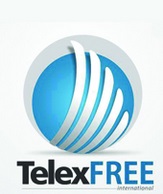 BULLETIN: The court-appointed trustee in the TelexFree bankruptcy case is seeking authority to issue subpoenas and obtain information from eight financial institutions, including Puerto Rico-based Oriental Bank.
BULLETIN: The court-appointed trustee in the TelexFree bankruptcy case is seeking authority to issue subpoenas and obtain information from eight financial institutions, including Puerto Rico-based Oriental Bank.
The other seven are Digital Federal Credit Union, based in TelexFree’s headquarters city of Marlborough, Mass., Bank of America, JPMorgan Chase, Citizens Bank, Santander, TD Bank and Wells Fargo.
All of the banks ended up in the TelexFree stream of commerce, but precise details of the relationships are not known publicly. What is known is that some TelexFree bank accounts were seized in criminal or civil forfeiture actions and that a cascading avalanche of litigation continues to roar down the mountain.
Why MLM firms continually tempt this ruinous fate is one of the great business mysteries of current times.
In the instances of Bank of America and TD Bank, it is known that TelexFree affiliates were given instructions to make walk-in deposits at the banks, some in the name of TelexFree Inc., others in the name of TelexFree LLC. Those instructions were highly similar to instructions given to members of the $119 million AdSurfDaily MLM Ponzi scheme in 2008.
Court filings by Trustee Stephen B. Darr say he is trying to get to the heart of TelexFree-related money flow and communications involving the banks. Notably, one of the concerns is that all eight of the banks allegedly issued TelexFree-related cashier’s checks prior to the firm’s April 2014 bankruptcy filing, and later dishonored some of the checks.
Cashier’s checks also were an issue in the ASD case. At the time of the ASD related actions in 2008, the enterprise was the largest known MLM HYIP Ponzi scheme. It since has been surpassed by Zeek Rewards, TelexFree and others.
Dishonored cashier’s checks became one of the earliest issues in the $850 million Zeek Rewards MLM scheme in 2012. Citing the Uniform Commercial Code, Zeek’s receiver and lawyers have been been pursuing remedies from the banks for more than two years — at a cost of money and time.
Kenneth D. Bell, the Zeek receiver, has said that “[i]f a bank refuses to pay a cashier’s check or teller’s check presented by the Receiver, it may be required to pay for the Receiver’s expenses and loss of interest resulting from the nonpayment, as well as consequential damages.”
In the Zeek case, the Virginia Bankers Association provided guidance to member institutions that “the court’s order relied on the Uniform Commercial Code to establish that the uncashed cashier’s checks in the receiver’s possession were receivership assets, and that the receiver was required to present those cashier’s checks for payment and had no discretion not to.”
Now, the TelexFree trustee appears to be wading into the same or highly similar MLM waters. Among the information Darr is seeking is “information respecting the remitters of the cashiers’ checks and the reasons for the dishonor of such checks.”
Because MLM Ponzi- and pyramid schemes spread virally, have common promoters and often rely on cashier’s checks, it is conceivable that some promoters might have bought their way into both “programs” with cashier’s checks, possibly even with cashier’s checks recruits paid to their upline sponsors, rather than to the “programs” themselves.
In the case of Zeek, tens of millions of dollars in checks allegedly had backed up at Zeek’s office in North Carolina in the weeks prior to the SEC’s August 2012 Ponzi- and pyramid action.
The TelexFree case may add a new wrinkle. Indeed, nearly $38 million in cashier’s checks from Wells Fargo allegedly were found in TelexFree’s Marborough office in the possession of Joseph Craft two days after TelexFree’s April 13 bankruptcy filing. Craft, who has denied wrongdoing, was a TelexFree executive. He has been charged civilly with securities fraud.
In April, the SEC said that a check dated April 3 in Craft’s possession was “remitted to” TelexFree principal Carlos Wanzeler and made out to “TelexFree Dominicana SRL in the amount of $10,398,000.”
One check for more than $2 million in Craft’s possession was made out to Katia B. Wanzeler, Wanzeler’s wife. She later was arrested at JFK Airport in New York and detained for more than a week as a material witness.
The SEC alleged that Carlos Wanzeler was amassing a small-real estate empire in Massachusetts and Florida. He is alleged to have ducked out of the United States via Canada in April, ultimately flying to his native country of Brazil. The United States describes him as an international fugitive.
Darr now is seeking not only information about the cashier’s checks, but also information on communications between the banks and TelexFree or its principals James Merrill and Carlos Wanzeler, and information on any TelexFree-related investigations conducted by the banks, including “information related to ‘Know Your Customer’” rules and regulations.
In addtion, Darr is seeking bank statements, canceled checks, deposit slips, wire-transfer communications and remittances, documentation concerning fees and contracts, minutes from bank board meetings at which TelexFree matters were discussed, documentation on why the banks ended relationships with TelexFree, documentation on communications the banks had with the SEC and state regulatory bodies, documentation the banks may have on the Massachusetts Securities Division TelexFree investigation and documentation “concerning whether the remitters have been refunded any amounts advanced to purchase” the dishonored checks.